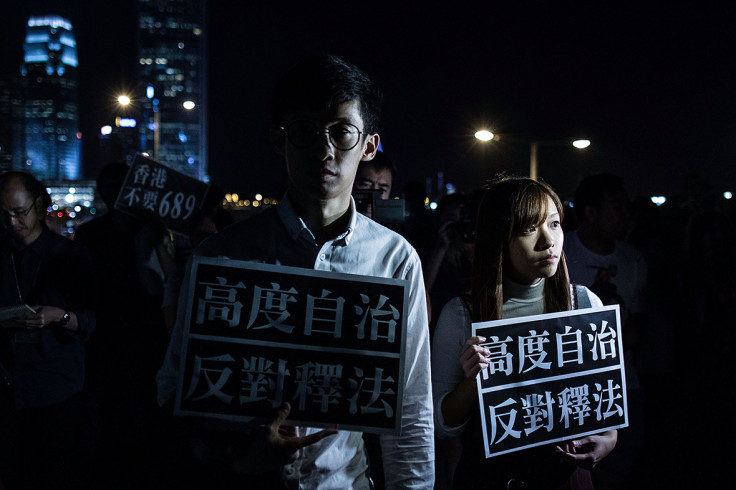Hong Kong braced for new pro-democracy protests against China
Lawmaker Dennis Kwok is organising a silent march, echoing the one in 2014 that led to huge pro-democracy rallies.
Pro-democracy activists are organising new protests against China's interference with Hong Kong's judiciary system.
Civic Party lawmaker Dennis Kwok, a member of the Legislative Council, has called for a silent march to take place on 8 November, after another rally on 6 November organised by the party. The silent march is the fourth to take place in almost 20 years.
The most recent one was organised in June 2014, when lawyers dressed in black marched from Hong Kong's High Court to the Court of Final Appeal, standing in silence for three minutes to protest about Beijing's interference in the governance of Hong Kong. Back then, the silent march became the preamble to the massive pro-democracy rallies that took the city by storm from July to December 2014.
On Friday (4 November), the Hong Kong authorities announced that members of the Standing Committee of the National People's Congress (NPCSC), China's top legislative panel, will discuss interpreting the Basic Law article at the core of a court case against two pro-independence lawmakers.
Effectively, Beijing will be making a decision that it can overrule whatever the court in Hong Kong decides on the case, sparking concern over the independence of the city's judiciary system. "Please join the legal profession on a silent march against the arbitrary and unnecessary use of power by the NPCSC to interpret the Basic Law. Our values must live on," Kwok wrote on social media following the announcement.
The rebel lawmakers, Yau Wai-ching and Sixtus "Baggio" Leung, were elected in September to the Legislative Council from the ranks of the localist Younspiration party, which was born from the Umbrella Movement, which rejects China's authority over the city. In the first swearing-in attempt, the two mocked the oath, mispronounced "People's Republic of China" in a derogatory way, and displayed a banner reading "Hong Kong is not China".

They have since been prevented from taking the oath again, despite repeated attempts, and the Hong Kong government launched an unprecedented legal challenge, arguing they do not have the right to take the oath again and should lose their seats in the council.
The government had previously denied asking Beijing to step in the controversy after rumours published in the local press spurred a pro-independence rally across the city on 2 November.
The two lawmakers at the centre of the controversy spoke to the press following the announcement. "When the situation is not favourable for China's Communists, they use politics to solve a legal problem," Yau said. "The interpretation of the NPCSC brings a lethal blow to the legal system and the rule of law in Hong Kong," Leung added, a view previously expressed by the Hong Kong Bar Association in a statement published on 2 November.
A former British colony, Hong Kong was handed over to China in 1997 and has since been denoted a special administrative region of the People's Republic of China. The "one country, two systems" principle guarantees Hong Kong some civil liberties such as freedom of speech and a degree of legislative autonomy until 2047.
© Copyright IBTimes 2024. All rights reserved.






